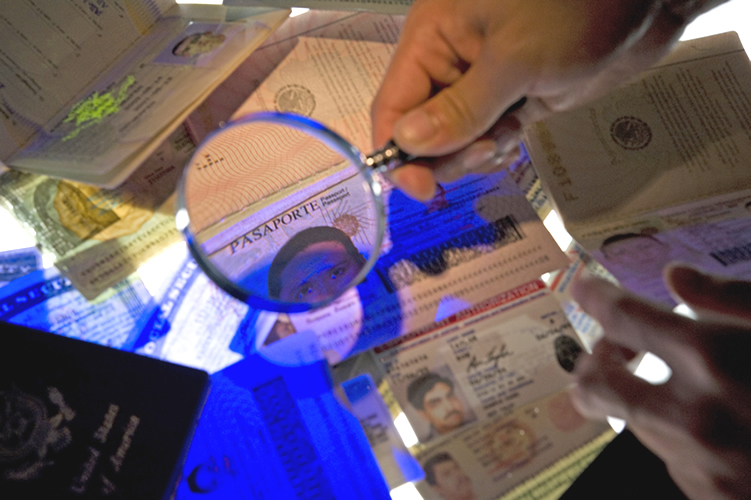Archived Content
In an effort to keep ICE.gov current, the archive contains content from a previous administration or is otherwise outdated. This information is archived and not reflective of current practice.
TOP STORY: ICE's Forensic Document Lab serves as authentication authority
U.S. Immigration and Customs Enforcement (ICE) investigations are often complex, requiring significant examination and analysis. That's when the honed skills of the staff at the agency's Forensic Document Lab (FDL) come into play. Established in 1978, the lab serves as the authority on determining the authenticity of travel and identity documents.
"The FDL mission has evolved to provide full complement forensic document examination and fingerprint services," said Marshall Heeger, the lab's director.
Much of that has to do with the expanded mission of ICE. Not only does ICE enforce the country's immigration laws, but it is also involved in an array of criminal investigations ranging from drug smuggling to money laundering.
The lab is the only U.S. crime laboratory specializing in the scientific authentication, research, training, and research of travel and identity documents and related issues. It consists of two divisions - Forensic Services and Operations. Forensic Services includes the lab's document examination, fingerprinting and chemistry units. The Operations Division provides training to ICE employees and other federal agencies, issues document intelligence alerts and oversees special projects like synthesizing and distributing intelligence information for investigations. The FDL also helps federal agencies develop identification and travel documents that are more secure and more difficult to replicate.
"You're never going to make a counterfeit proof document. We work with our colleagues to try to make documents counterfeit resistant," said Heeger.
And how does the team do that? More than 60 specially trained staff members have access to a library and databases of identity and travel documents from across the world and the latest technology to identify inconsistencies. Missing holograms, improper printing techniques and missing security chips are often red flags.
"You have to know what you're looking for and think creatively," said Heeger.
Lab staff can also lift fingerprints from those documents, as well as from evidence like money wrappings, suitcases, weapons and more, to aid ICE special agents in larger investigations.
"The FDL is in a unique position to provide specialized support to ICE and other U.S. and foreign law enforcement agencies, whether it be forensic document examination, fingerprint processing, examination, and identification, or training in identifying fraudulent documents," said Heeger.


